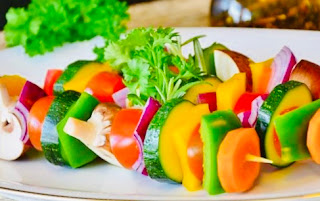NUTRITION IN BABIES••••
NUTRITION IN BABIES
You can give your baby meat and egg yolk after 7 months.
You can give fresh fish and pulses from the 8th month.
You can use egg white after 1 year of age.
Do not use allergenic foods such as eggplant and strawberries in baby meals.
Do not use honey and bran bread in recipes before 1 year old.
You can prepare recipes such as cakes and cookies with baby cereals.
Citrus fruits, banana and kiwi can be given after 6 months.
Give priority to the nutrition of your baby with artichokes, which are a prebiotic fiber source, walnuts, which are a source of omega 3, pulses that are a source of protein, and fruits and vegetables, most of which have antioxidant effects.
You can also be offered different tastes to your baby to create the habit of drinking milk. Different flavors can be created by preparing milk with grains and fruits.
Do not add salt and sugar to your baby's food.
Do not use products that contain additives made for adults. (Whipped cream, chocolate, instant cake, etc.)
Choose liquid oil. (Corn extract or olive oil)
Do not use cow's milk before the age of one. In places where milk should be used - as WHO (World Health Organization) does not recommend cow milk, especially until the age of 1 - choose follow-on milk suitable for the month of babies.
When preparing your baby's food, keep in mind that a healthy and balanced diet is essential.
1. Fruits
Fruit juices such as apple, peach, pear, banana are given starting from 1-2 teaspoons and gradually increased.
Apple;
The apples are washed, peeled. It is mashed in glass grater or machine or its juice is squeezed. It is fed as water or puree.
Peach;
Peaches are washed, peeled, cut into slices, mashed with a fork or in a machine. It is fed as water or puree.
Banana;
It is mashed with a fork or in a machine. If desired, it can be diluted with orange or apple juice.
Fruits such as oranges, tangerines, and lemons may initially cause abdominal pain in children. For this, it is more appropriate to give these fruits after six months.
2. Vegetables
Mixed Vegetable Food
In the 6th month (1-2 weeks after starting fruit juices), it is usually given at lunch, starting from 3-4 dessert spoons and gradually increasing. It is prepared as dark soup at the beginning and in the form of thick puree after the first week.
Week 1 (Vegetable Soup)
4 glasses of water, less than a pinch of salt, 1 medium carrot, 1 medium potato is cooked in a closed container for 45-50 minutes.
2nd Week (Simple Vegetable Puree)
4 cups of water, less than a pinch of salt, 1 carrot, 1 potato and 1 zucchini 40 min. boiled. The mash obtained by passing through the machine is fed.
3rd Week (Mixed Vegetable Puree)
4 cups of water, a pinch of salt, 2 medium carrots, 1 medium potato plus 1 teaspoon of rice and seasonal vegetables to be added every day (e.g. 3-4 leaves of parsley on the first day, parsley the next day + a How many leaves of spinach, 1 zucchini, 1/4 artichoke, 1/4 tomato etc.) and 1 teaspoon of rice are added the next day. It is mashed and fed through a wire strainer or machine.
4th Week (Whole Vegetable Puree)
1 teaspoon of olive oil is added to the puree prepared as above.
7th month
A tablespoon of ground beef (3 times ground) or a small piece of chicken should be added to vegetable soup or puree.
3. Pudding
From the 6th month, it is started 1-2 weeks after the vegetable puree. It is usually given as an evening meal.
Cow's Milk Pudding
It is made with 1 cup of milk, 1 teaspoon of rice flour, 1 teaspoon of sugar. Rice flour is thoroughly crushed with a portion of cold milk. The remaining milk is added and mixed and cooked. Sugar is added close to the stroke.
Pudding with Formula Milks
It is cooked by mixing 1 cup of water and 1 teaspoon of rice flour. After removing it from the fire, 6 scales of formula milk is added. If necessary, the wire is passed through a strainer.
4. Yogurt
Usually, yoghurt, which is a supplementary food in the afternoon, can also be given instead of pudding. It should be sweet yogurt. Offer fresh yoghurt daily. Start with a dessert spoon. In 7-10 days, go up to a water glass. Thus, you will have one meal of yogurt.
5. Breakfast
From the 7th month, it is started after the child gets used to the above foods.
Baby Breakfast Preparation
The formula is prepared with milk, cheese, jam or molasses, bread. Unsalted cheese and jam are crushed in milk and the bread crumbs are added to the mixture. It is started as 1 -2 dessert spoon first and the amount is gradually increased. Honey should not be given before the age of 1 due to its allergic nature. If desired, 1 teaspoon of olive oil can be added to breakfast. After the 8th month, cheese, jam, olives and bread can be given separately from milk.
6. Egg
Since it is a nutrient that can cause allergies as a foreign protein, it is given by starting from small amounts and increasing gradually. With heat, proteins are partially broken down and their allergic properties are reduced. When it is first started (at 6 months), the egg is hard-boiled and only the yolk is given. 1/2 coffee spoon egg is mixed with 1/2 spoon of vegetables just before the vegetable meal. The whole yolk is given at the end of 8-10 days by increasing the amount every other day. It is discontinued in children with allergic symptoms (vomiting, diarrhea, skin rash) and tried again after 2-3 weeks. It is not given if symptoms recur. In those who tolerate well, at 7 months of age, eggs are taken for morning meal. No more than 3-4 egg yolks per week should be given. Since egg whites can cause allergies, they are not recommended until the 12th month.
7.Minced meat
From the end of the sixth month, when your baby starts taking a full meal of vegetable puree, you can add meat to the puree in the form of minced meat. A tablespoon of minced meat in a meal of vegetable puree is sufficient. For other meals, it can be added to vegetable purees in small pieces by chopping off seasoned grilled meatballs or white meat of chicken.
8. Meatballs
It is prepared from lean, unlimited ground beef or beef with the addition of very little breadcrumbs and salt. It is cooked in a pan or grill without oil. It is paid attention that the inside is cooked thoroughly. Vegetable food or served separately.
9. Fish
After the seventh month of age, boiled or grilled white meat fish can be given. Fish with bones should be well sorted. Care should be taken in terms of allergies.
10. Cereal Soups
Lentil, yoghurt plateau, and painless tarhana soups can be given to the child from the 9th month onwards to teach different tastes.
Nutrition for 1-2 Years Old Children
During this period, the daily diet of children should include the following food groups in a balanced way.
Food groups:
Milk and dairy products (milk, yogurt and cheese): These foods contain protein, vitamins A and B, calcium, zinc, iodine and magnesium. It is not recommended to consume low-fat milk in the first 12 months. Half a liter should be given to infants every day. Milk can be given in any way. The calcium contained in milk is very important for the development of children. A baby who does not drink milk but eats cheese gets his calcium need from cheese.
Meat, fish and legumes (eggs, red and white meats, lentils, chickpeas): These foods contain protein, vitamins A and B, iron, zinc and fiber (vegetable sources).
Bread, other grains and potatoes (makama, rice, other flours are also from this group): These foods contain protein, B1, B6 vitamins, calcium, iron and fiber.
Vegetables and fruits (fruit, juice, vegetables, salads): Contains fiber, vitamins A and C, folic acid, potassium and iron.











Comments
Post a Comment